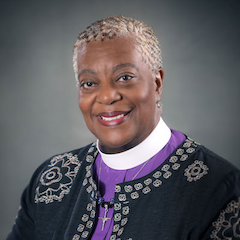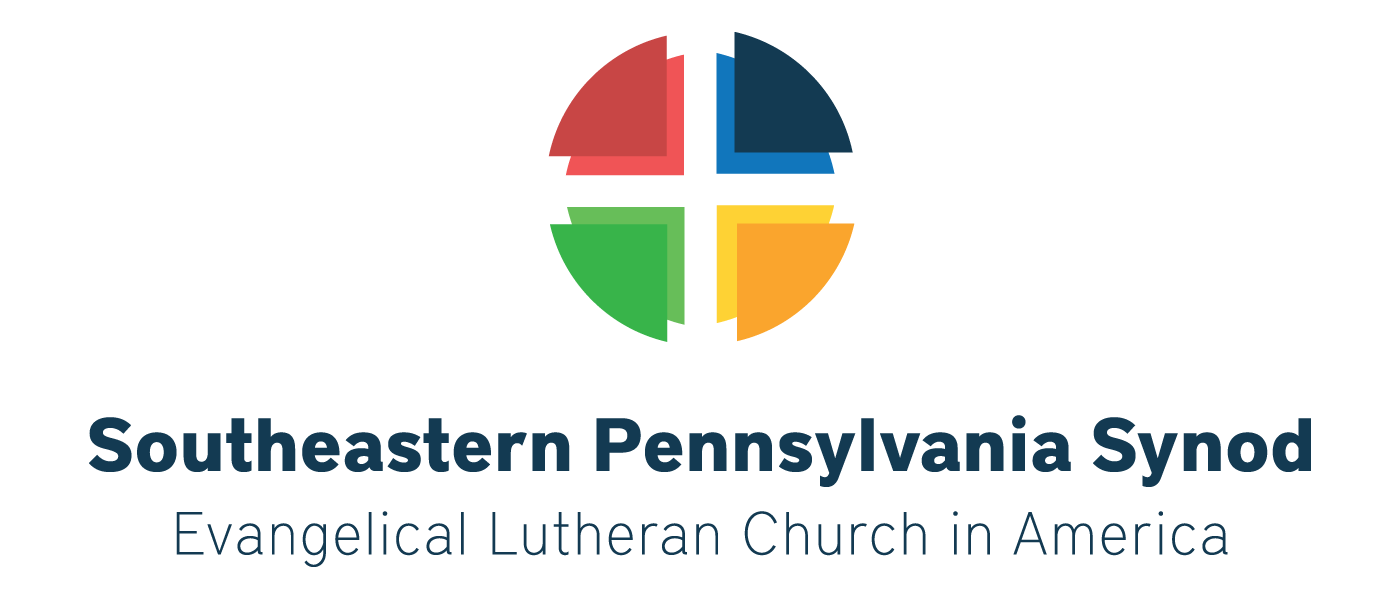August 16, 2019 in Bishop, Bishop messages, ELCA, Faith in action
Bishop’s Message on ELCA as ‘Sanctuary’

August 2019
Beloved siblings in Christ,
Last week at our Churchwide Assembly, the Evangelical Lutheran Church in America recommitted itself to walking alongside immigrants and refugees as a matter of faith.This Assembly action affirmed our history as an immigrant faith in the United States and the Lutheran church’s long history of assisting strangers in our land.
We live in a time when the immigration system in our nation is stressed to the point of breaking, and the legal processes for dealing fairly with those seeking refuge and asylum in America is overwhelmed. As immigration is part of our national debate, our ELCA is emphasizing the biblical and historic basis for walking with one another in the form of accompaniment, and the increased opportunity for diversity and inclusivity as we build relationships with global immigrants. To be light to those who are in darkness through separation of parents and children and the threat of deportation of loved ones, we are called to be beacons of hope. This is truly “God’s work. Our hands.”
The Churchwide Assembly proclaimed that the ELCA aspires to be “a sanctuary denomination.” The Assembly acted to lean into our prophetic call to provide support and comfort to immigrants, recognizing that “sanctuary” will be embodied differently across the church. Sanctuary may include providing information about undocumented persons’ rights, connecting them with legal assistance, providing food, funds or housing – or simply having faithful discussions of immigration issues in our churches. In the months and years ahead we will, together, determine how expressions of the ELCA offer “sanctuary.”
Let me be clear that this Assembly action in no way encourages Lutherans to break any immigration laws (as some news media outlets have suggested). In fact, this decision by our church to recommit to working for the rights of migrants and refugees in no way compels any congregation to take a particular course of action.
Instead, I encourage you to consider this decision a call to consider how you and your congregation engage with immigrant populations and to discern how you could meet local needs and/or advocate for laws that reflect the biblical values of loving our neighbors and seeking the welfare of immigrants in our midst.
This action should not be construed as a “top-down” decision by ELCA leaders. This issue was placed before the Assembly by an action from the Metropolitan New York Synod, and the language about “sanctuary denomination” was added from the Assembly floor. Discussion was civil and rooted in Scripture and our Lutheran heritage. This grassroots initiative was affirmed by more than 900 voting members elected from each of the ELCA’s 65 synods.
I have included below bullet points prepared by the ELCA that explore the meaning of this decision. I encourage you to read them, pray about them, and discuss them in your community of faith. If you have further questions I encourage you to converse with me at .
In Christ’s love,
![]()
The Rev. Patricia A. Davenport,
Bishop
Download This Letter and Informational Points

What does becoming a sanctuary denomination mean for the ELCA?
- In its simplest form, becoming a sanctuary denomination means that the ELCA is publicly declaring that walking alongside immigrants and refugees is a matter of faith. The ELCA Churchwide Assembly, the highest legislative authority of the ELCA, declared that when we preach on Sunday that Jesus told us to welcome, we will use our hands and voices on Monday to make sure it happens.
- Being a sanctuary denomination does not call for any person, congregation or synod to engage in any illegal actions.
- We have a broken system regarding immigration, refugees and asylum seekers. To declare ourselves a sanctuary church body is to say that we seek to provide concrete resources to assist the most vulnerable who are feeling the sharp edges of this broken system.
- Being a sanctuary denomination is about loving our neighbors. While we may have different ideas about how to fix this broken system and may have different ways of loving our neighbors, our call to love our neighbor is central to our faith.
- Being a sanctuary denomination will look different in different contexts. It may mean providing space for people to live; providing financial and legal support to those who are working through the immigration system; or supporting other congregations and service providers. We cannot mandate or direct our congregations and ministries to respond in specific ways. Each must work out what this means for them in their context.
- While we don’t yet know the full scope of the work that this declaration will open for the church, we do know that our faith communities are already doing sanctuary work. Sanctuary for a congregation may mean hosting English as a second Language (ESL) classes; marching as people of faith against the detention of children and families; providing housing for a community member facing deportation; or, in some of our congregations, having thoughtful conversations about what our faith says about immigration. All of these are a step closer to sanctuary in our faith communities and sanctuary in our world for people who must leave their homes.
- Except for our members whose ancestors were here before European settlement or others who were forced to come to the U.S. against their will, the ELCA is an immigrant church. Our decadeslong work with immigrants and refugees is how we practice our faith in the world. Lutherans started Lutheran Immigration and Refugee Service, one of the nine refugee resettlement agencies in the U.S.
- At our last churchwide assembly, we also committed to walking alongside Central American children and families fleeing their communities by passing the AMMPAROstrategy (Accompanying Migrant Minors with Protection, Advocacy, Representation and Opportunities).
- Through the AMMPARO strategy, we are also working through our global partners in Central America to alleviate the conditions that cause people to migrate. We support organizations and faith communities that work with deported migrants in Central America and advocate for the humane treatment of immigrants in Mexico. In the U.S., we have a network of 151 welcoming and sanctuary congregations that are committed to working on migration issues and a welcome for immigrant communities. The church also has five sanctuary synods (our regional structures), all of which do work with immigrants, refugees and asylum-seekers.
- In baptism, we are brought into a covenantal relationship with Jesus Christ that commits us to strive for justice and peace in all the earth. Following the example of Martin Luther, we believe that advocacy is a crucial expression of baptismal identity. As a church, we have advocated for stopping the detention of children and families for decades. We have spoken out against family separation, sought a pathway to citizenship for community members who have lived in the U.S. for many years, and have taken steps to address the root causes of migration in a way that honors the humanity in people who must flee.
- Being a sanctuary denomination means that we, as church together, want to be public and vocal about this work. At the same time, we will have conversations about what sanctuary means with many of our members and discern future action and direction. Welcoming people is not a political issue for us, it is a matter of faith.


